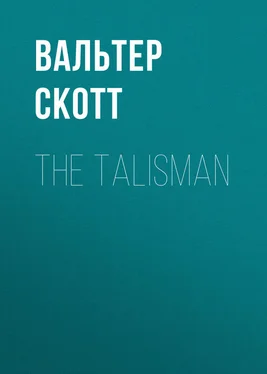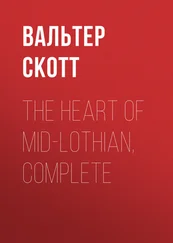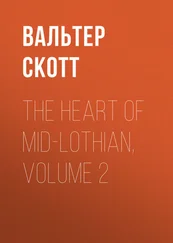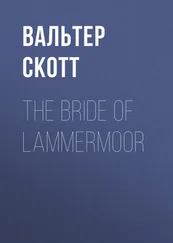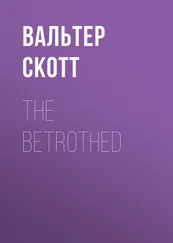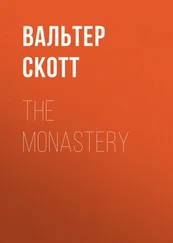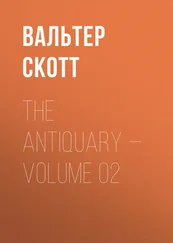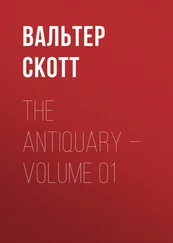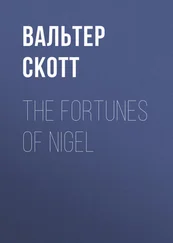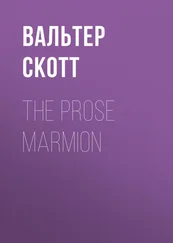Вальтер Скотт - The Talisman
Здесь есть возможность читать онлайн «Вальтер Скотт - The Talisman» — ознакомительный отрывок электронной книги совершенно бесплатно, а после прочтения отрывка купить полную версию. В некоторых случаях можно слушать аудио, скачать через торрент в формате fb2 и присутствует краткое содержание. Жанр: foreign_antique, foreign_prose, на английском языке. Описание произведения, (предисловие) а так же отзывы посетителей доступны на портале библиотеки ЛибКат.
- Название:The Talisman
- Автор:
- Жанр:
- Год:неизвестен
- ISBN:нет данных
- Рейтинг книги:3 / 5. Голосов: 1
-
Избранное:Добавить в избранное
- Отзывы:
-
Ваша оценка:
- 60
- 1
- 2
- 3
- 4
- 5
The Talisman: краткое содержание, описание и аннотация
Предлагаем к чтению аннотацию, описание, краткое содержание или предисловие (зависит от того, что написал сам автор книги «The Talisman»). Если вы не нашли необходимую информацию о книге — напишите в комментариях, мы постараемся отыскать её.
The Talisman — читать онлайн ознакомительный отрывок
Ниже представлен текст книги, разбитый по страницам. Система сохранения места последней прочитанной страницы, позволяет с удобством читать онлайн бесплатно книгу «The Talisman», без необходимости каждый раз заново искать на чём Вы остановились. Поставьте закладку, и сможете в любой момент перейти на страницу, на которой закончили чтение.
Интервал:
Закладка:
Sir Simon Lockhart, after much experience of the wonders which it wrought, brought it to his own country, and left it to his heirs, by whom, and by Clydesdale in general, it was, and is still, distinguished by the name of the Lee-penny, from the name of his native seat of Lee.
The most remarkable part of its history, perhaps, was that it so especially escaped condemnation when the Church of Scotland chose to impeach many other cures which savoured of the miraculous, as occasioned by sorcery, and censured the appeal to them, “excepting only that to the amulet, called the Lee-penny, to which it had pleased God to annex certain healing virtues which the Church did not presume to condemn.” It still, as has been said, exists, and its powers are sometimes resorted to. Of late, they have been chiefly restricted to the cure of persons bitten by mad dogs; and as the illness in such cases frequently arises from imagination, there can be no reason for doubting that water which has been poured on the Lee-penny furnishes a congenial cure.
Such is the tradition concerning the talisman, which the author has taken the liberty to vary in applying it to his own purposes.
Considerable liberties have also been taken with the truth of history, both with respect to Conrade of Montserrat’s life, as well as his death. That Conrade, however, was reckoned the enemy of Richard is agreed both in history and romance. The general opinion of the terms upon which they stood may be guessed from the proposal of the Saracens that the Marquis of Montserrat should be invested with certain parts of Syria, which they were to yield to the Christians. Richard, according to the romance which bears his name, “could no longer repress his fury. The Marquis he said, was a traitor, who had robbed the Knights Hospitallers of sixty thousand pounds, the present of his father Henry; that he was a renegade, whose treachery had occasioned the loss of Acre; and he concluded by a solemn oath, that he would cause him to be drawn to pieces by wild horses, if he should ever venture to pollute the Christian camp by his presence. Philip attempted to intercede in favour of the Marquis, and throwing down his glove, offered to become a pledge for his fidelity to the Christians; but his offer was rejected, and he was obliged to give way to Richard’s impetuosity.” – HISTORY OF CHIVALRY.
Conrade of Montserrat makes a considerable figure in those wars, and was at length put to death by one of the followers of the Scheik, or Old Man of the Mountain; nor did Richard remain free of the suspicion of having instigated his death.
It may be said, in general, that most of the incidents introduced in the following tale are fictitious, and that reality, where it exists, is only retained in the characters of the piece.
ABBOTSFORD, 1st July, 1832
APPENDIX TO INTRODUCTION
The best leeches of the camp were unable to effect the cure of the King’s disease; but the prayers of the army were more successful. He became convalescent, and the first symptom of his recovery was a violent longing for pork. But pork was not likely to be plentiful in a country whose inhabitants had an abhorrence for swine’s flesh; and
“Though his men should be hanged,
They ne might, in that countrey,
For gold, ne silver, ne no money,
No pork find, take, ne get,
That King Richard might aught of eat.
An old knight with Richard biding,
When he heard of that tiding,
That the king’s wants were swyche,
To the steward he spake privyliche —
“Our lord the king sore is sick, I wis,
After porck he alonged is;
Ye may none find to selle;
No man be hardy him so to telle!
If he did he might die.
Now behoves to done as I shall say,
Tho’ he wete nought of that.
Take a Saracen, young and fat;
In haste let the thief be slain,
Opened, and his skin off flayn;
And sodden full hastily,
With powder and with spicery,
And with saffron of good colour.
When the king feels thereof savour,
Out of ague if he be went,
He shall have thereto good talent.
When he has a good taste,
And eaten well a good repast,
And supped of the BREWIS [Broth] a sup,
Slept after and swet a drop,
Through Goddis help and my counsail,
Soon he shall be fresh and hail.’
The sooth to say, at wordes few,
Slain and sodden was the heathen shrew.
Before the king it was forth brought:
Quod his men, ‘Lord, we have pork sought;
Eates and sups of the brewis SOOTE,[Sweet]
Thorough grace of God it shall be your boot.’
Before King Richard carff a knight,
He ate faster than he carve might.
The king ate the flesh and GNEW [Gnawed] the bones,
And drank well after for the nonce.
And when he had eaten enough,
His folk hem turned away, and LOUGH.[Laughed]
He lay still and drew in his arm;
His chamberlain him wrapped warm.
He lay and slept, and swet a stound,
And became whole and sound.
King Richard clad him and arose,
And walked abouten in the close.”
An attack of the Saracens was repelled by Richard in person, the consequence of which is told in the following lines: —
“When King Richard had rested a whyle,
A knight his arms ‘gan unlace,
Him to comfort and solace.
Him was brought a sop in wine.
‘The head of that ilke swine,
That I of ate!’ (the cook he bade,)
‘For feeble I am, and faint and mad.
Of mine evil now I am fear;
Serve me therewith at my soupere!’
Quod the cook, ‘That head I ne have.’
Then said the king, ‘So God me save,
But I see the head of that swine,
For sooth, thou shalt lesen thine!’
The cook saw none other might be;
He fet the head and let him see.
He fell on knees, and made a cry —
‘Lo, here the head! my Lord, mercy!’”
The cook had certainly some reason to fear that his master would be struck with horror at the recollection of the dreadful banquet to which he owed his recovery; but his fears were soon dissipated.
“The swarte vis [Black face] when the king seeth,
His black beard and white teeth,
How his lippes grinned wide,
‘What devil is this?’ the king cried,
And ‘gan to laugh as he were wode.
‘What! is Saracen’s flesh thus good?
That never erst I nought wist!
By God’s death and his uprist,
Shall we never die for default,
While we may in any assault,
Slee Saracens, the flesh may take,
And seethen and roasten and do hem bake,
[And] Gnawen her flesh to the bones!
Now I have it proved once,
For hunger ere I be wo,
I and my folk shall eat mo!”’
The besieged now offered to surrender, upon conditions of safety to the inhabitants; while all the public treasure, military machines, and arms were delivered to the victors, together with the further ransom of one hundred thousand bezants. After this capitulation, the following extraordinary scene took place. We shall give it in the words of the humorous and amiable George Ellis, the collector and the editor of these Romances: —
“Though the garrison had faithfully performed the other articles of their contract, they were unable to restore the cross, which was not in their possession, and were therefore treated by the Christians with great cruelty. Daily reports of their sufferings were carried to Saladin; and as many of them were persons of the highest distinction, that monarch, at the solicitation of their friends, dispatched an embassy to King Richard with magnificent presents, which he offered for the ransom of the captives. The ambassadors were persons the most respectable from their age, their rank, and their eloquence. They delivered their message in terms of the utmost humility; and without arraigning the justice of the conqueror in his severe treatment of their countrymen, only solicited a period to that severity, laying at his feet the treasures with which they were entrusted, and pledging themselves and their master for the payment of any further sums which he might demand as the price of mercy.
Читать дальшеИнтервал:
Закладка:
Похожие книги на «The Talisman»
Представляем Вашему вниманию похожие книги на «The Talisman» списком для выбора. Мы отобрали схожую по названию и смыслу литературу в надежде предоставить читателям больше вариантов отыскать новые, интересные, ещё непрочитанные произведения.
Обсуждение, отзывы о книге «The Talisman» и просто собственные мнения читателей. Оставьте ваши комментарии, напишите, что Вы думаете о произведении, его смысле или главных героях. Укажите что конкретно понравилось, а что нет, и почему Вы так считаете.
